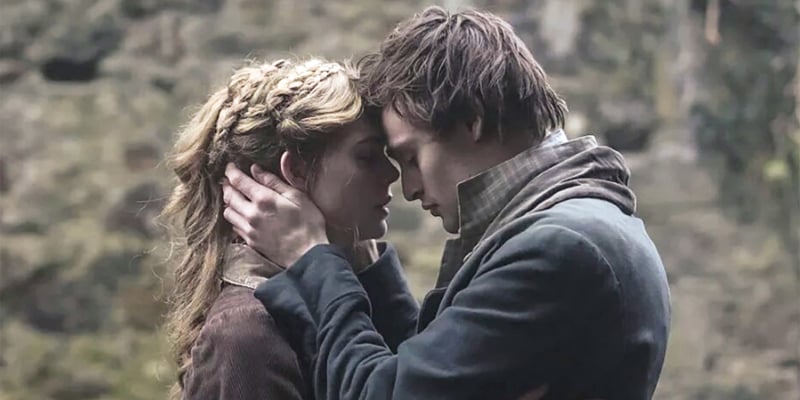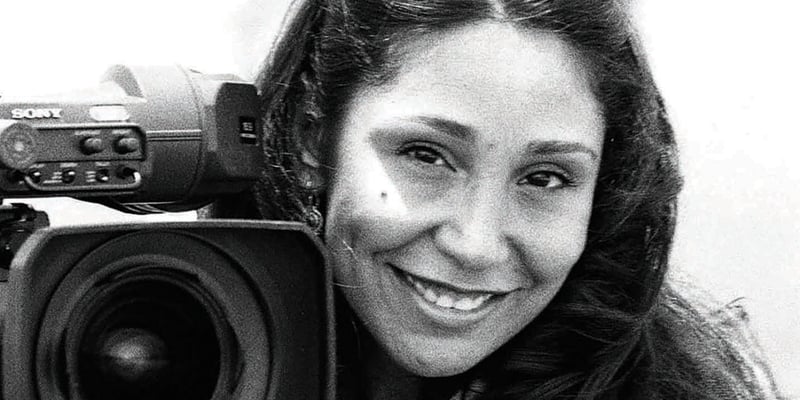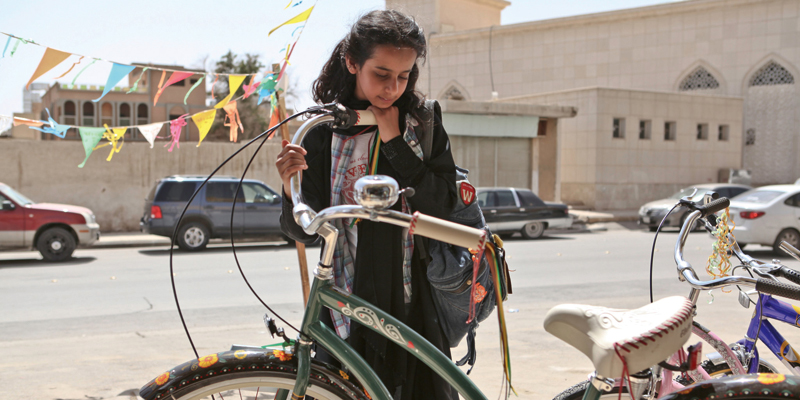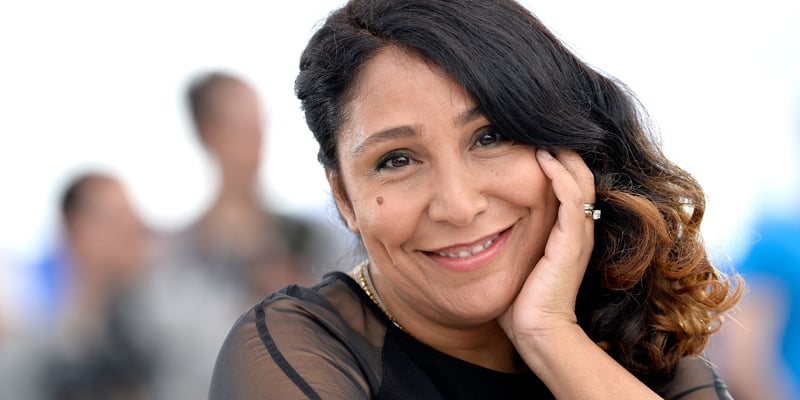Saudi Arabia’s first female director is glad she held out for the right project after the success of her first film.
Haifaa Al-Mansour has to be the only Hollywood director who’s thought to herself ‘at least I don’t have to hide to get this shot’.
Widely recognised as Saudi Arabia’s first female film director, Haifaa did literally have to hide in a van some of the time while directing her first feature film, 2012’s widely acclaimed Wadjda.
Read:
Just who is Saudi’s rising starlet Aishah Al Banawi?
The modern muse: How social media is turning women into stars
The story of a young girl who dreams of getting a forbidden bicycle couldn’t be different from her second feature, due out this year. Mary Shelley tackles the writer’s romantic relationship with the poet Percy Bysshe Shelley, which inspired her to write Frankenstein, and with Elle Fanning in the title role, features some of the hottest young actors working in Hollywood today.
Haifaa, who is also in post-production on her third feature, Nappily Ever After, a romantic comedy starring Sanaa Lathan, is enjoying her freedom.
“In Saudi you have to always be sensitive to the culture, it is stressful in that way. Not only are you worrying about the shot and the cinematography, we worried about so many things,” she explains. “In Mary Shelley it was amazing because I could just engage with your craft, I didn’t have to hide. For me I felt I was very grateful for that moment, just to be engaging with my art and having fun with it. It was really a wonderful moment.”

Al-Mansour’s second film, Mary Shelley.
Mary Shelley premiered at the Toronto International Film Festival in September of last year, and was picked up by IFC Films for US distribution, meaning it is due in theatres later this year. Haifaa was in Dubai in December to attend the Dubai International Film Festival, where she won the IWC Filmmaker’s Award.
The prize, in which the luxury watchmaker gives US$100,000 in development money to a winning script, was for a project Haifaa spent two years writing with her husband. Miss Camel is a stop-animation project that tells the story of a Saudi camel who dreams of competing in Abu Dhabi’s annual camel beauty festival, and a little girl who travels with her from Riyadh to make that dream come true.
Haifaa, excited to tackle another project back in the region, said the win was a validation after labouring in the writing process for two years.
“It’s really gratifying, and to know you are on the right track, and hopefully that will give us some money to start doing the character design and the environment design, to take it to the next level.”

Haifaa waited for the right project to come along after Wadjda, feeling instinctively that if she did another Saudi film – something that would have been “easy” to do – she risked being typecast as a regional director. “I felt like I need to capitalise on my success to make jump,” she explains.
Once in Los Angeles, she faced the kind of sexism that female filmmakers have been discussing for years – and has recently surged to the forefront.
“I think female filmmakers all over the world, not just the Arab world, it’s always a struggle, it’s very much a white male kind of dominance,” she explains. “Always they’ll be ‘we need a more established director’ and that means ‘middle-aged white man’, so it’s really like you have to always push.”
And although that is still happening, Haifaa sees this as a powerful time for women in film. That is in part due to the growing financial and critical success of projects featuring females at the helm, including Patti Jenkins’s Wonder Woman, as well as the unmasking of some powerful men in film for their terrible behaviour.
“There is a huge call for diversity and for women and equality,” she says. “And now we see with all the sexual harassment, and what is happening, there is a huge push to give women more space and more opportunities and I think female filmmakers and writers and show runners and producers need to seize that moment and make the best out of it and to implement ourselves in the industry.”

Al-Mansour’s directorial debut, Wadjda.
Her message for women who dream of working in Arab cinema is to believe in themselves and meet obstacles with hard work. “In Arab cinema the percentage is smaller,” says Haifaa with a smile, “but their films are better. We have Nadine Labaki, we have Annmarie Jacir, a lot of really good female filmmakers, so it is quality not quantity in the Arab world.”
When asked if she’s excited to see a film one day in a Saudi cinema, she shoots back: “See a movie? I’ll have a film playing!”
Read:
Sonam Kapoor: ‘I’m never going to feel sorry for myself’
‘How I made my first million’: 3 Middle East successes share their stories
Although she lives on the other side of the world now, Haifaa has been paying keen attention to the sweeping changes in her home country.
“There’s a lot of talk about opening cinemas and women will start driving,” she says. “And I go and visit my mother and there are music festivals all around, which is wonderful. I feel like there are a lot of social liberties that people are enjoying. It was absent from the public scenes for so long.”
Images: Supplied, Getty
Words: Ann Marie McQueen











